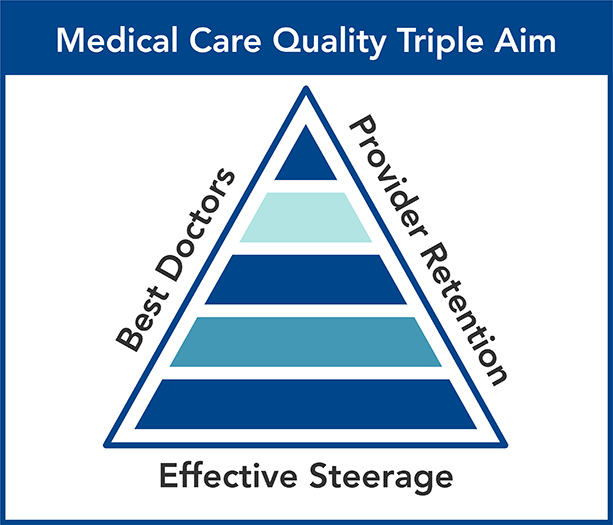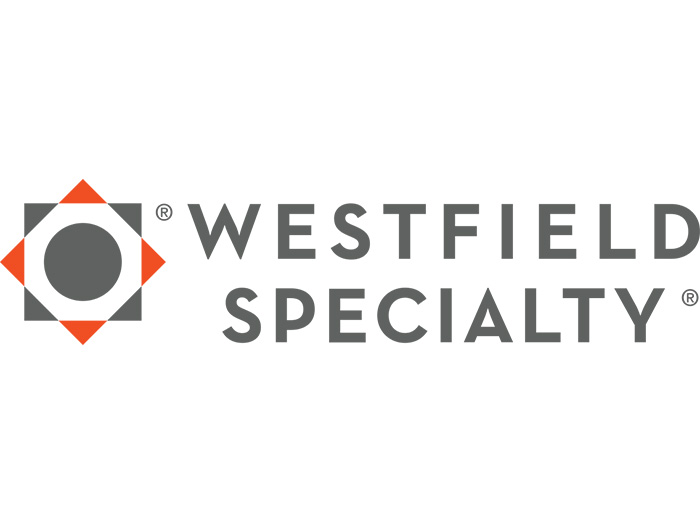Sponsored: Horizon Casualty Services
Choosing a Workers’ Comp PPO

Medical cost control continues to be the most challenging component of workers’ compensation expenses. For this reason, contracting with best in class workers’ compensation PPOs should be the goal of every workers’ compensation insurer in order to assure superior medical outcomes at lowest cost.
Though many workers’ compensation PPOs claim to be the biggest and the best, due diligence on the part of executive decision makers is critical as not every workers’ compensation PPO is the same.
In addition to executing the basics of having a very high percentage of facilities and providers contracted at competitive rates, best in class workers’ compensation PPOs must achieve more.
“In order to be best of the best, workers’ compensation PPOs must consistently achieve the medical care quality triple aim. That means:

Contracting with the best providers at the most competitive rates; retaining top providers; and identifying and steering injured workers to those PPO providers best suited to treat the most common injuries sustained on the job,” said Ilene Wachs, President, Horizon Casualty Services, Inc.
Horizon Casualty Services, Inc. (HCS), a subsidiary of Horizon Blue Cross Blue Shield of New Jersey, provides workers’ compensation and personal injury protection (PIP) PPO services throughout New Jersey and processes over $2.4 billion in medical bills annually.
With that scale, and with clients representing close to 50% of all workers’ compensation premiums in New Jersey and almost 70% of all the insured vehicles in the state, HCS successfully leverages the largest data trove of any New Jersey workers’ compensation PPO to generate valuable insights, leading to best medical outcomes at lowest cost.
Here are five tips for making the right workers’ comp PPO network decision:
Tip #1: Demand providers who put quality first.
For injured workers and their families, nothing is more important than rapid recovery and timely return to work. And that means the right treatment, from the right specialist, from the very first visit. Your PPO should be adept at identifying the highest rated providers that are best in class within their specialties. This is especially critical for orthopedics and pain management, which should achieve superior outcomes by using nationally accepted, evidence-based guidelines and are conservative in their approach to surgery, cautious in prescribing opioid narcotics and collaborate administratively.
At HCS, this is our Outcomes Focused Network Strategy. The objective is to achieve lowest per unit costs with best medical outcomes.
Tip #2: Ask Your PPO to provide the road map.

Ilene Wachs, President of Horizon Casualty Services, Inc.
Claims adjusters are busy. However, standard provider directories feature provider names displayed alphabetically. They do not make it easy to find best in class providers. Your PPO provider directory should feature premier providers at the top of any search along with their board specialty and principal area of practice (for example, knee, shoulder or spine).
HCS provides the road map by featuring Outcomes Focused Providers at the top, along with their medical specialty, area of practice, and hospital and ambulatory surgical center affiliations. Consistent referral to best-in-class providers benefits injured workers and insurers – a win-win!
Tip #3: Make them put their money where their mouth is.
“The difference in the results between a good PPO and a great one is many millions of dollars. If your PPO cannot show you a track record of better outcomes achieved at lowest possible cost, then move on,” stated Wachs.
Workers’ compensation claims may last from one day to a lifetime. Long tail claims can result in significant cost and reserving challenges. However, significantly controlling medical cost requires selecting a PPO with a sufficiently large provider network, with high quality providers and with contracted rates far below what insurers would pay if there were no PPO in place.
HCS, a subsidiary of the largest health insurer in New Jersey, has the size, referral volume and goodwill of the provider community to enable the company to successfully contract at extremely competitive rates with important health care providers in New Jersey.
Tip #4: Network utilization (or penetration) is an important metric – 82 percent to 92 percent is easily achievable
Under New Jersey workers’ compensation law, the insurer has the ability to steer injured workers to providers of the insurer’s choice. This provides opportunity to leverage contracted PPO rates and optimize results. For this reason, network utilization is a key metric. Because payments to facilities such as acute care hospitals, rehab hospitals and ambulatory surgery centers represent a significant portion of the medical spend, a broad PPO facilities network is important.
Network utilization is calculated as the sum of all in-network medical expenses prior to application of a PPO discount divided by all in-network and out-of-network medical expenses prior to application of a PPO discount.
HCS has 99% of all acute care hospitals in-network, and contracts with all major rehabilitation hospitals and a vast array of ambulatory surgery centers. The company also contracts with physicians and other health care professionals specializing in musculoskeletal medicine. As a result, its clients’ network utilization levels are extremely high at 82% to 92%.
Tip #5: Do they sweat the details?
A sloppy PPO operation, with unacceptable levels of medical bill processing and other errors, can create reputational damage for carriers and employers and unnecessary administrative cost. The best workers’ compensation PPOs process bills promptly and accurately. The leading indicator of an efficient PPO focused on precision is the appeal rate.
At HCS, the focus on precision is key. The company’s appeals rate is 0.3%. This reflects HCS’s focus on maintaining pristine provider demographic data, precise medical bill pricing results and excellent relationships with its provider network participants.
In summary, your workers’ compensation PPO should be strong and stable to enable the delivery of the best possible health care to injured workers. This critical component of an effective health care value strategy produces the best possible result for people, for business and for overall wellbeing.
Since 1996, HCS has provided results-based services to large workers’ compensation insurers and self-insured entities.
For more information, email Jed Hoban, HCS Business Development Executive, at [email protected] or visit https://www.horizonblue.com/horizoncasualty/.
This article was produced by the R&I Brand Studio, a unit of the advertising department of Risk & Insurance, in collaboration with Horizon Casualty Services, Inc. The editorial staff of Risk & Insurance had no role in its preparation.










